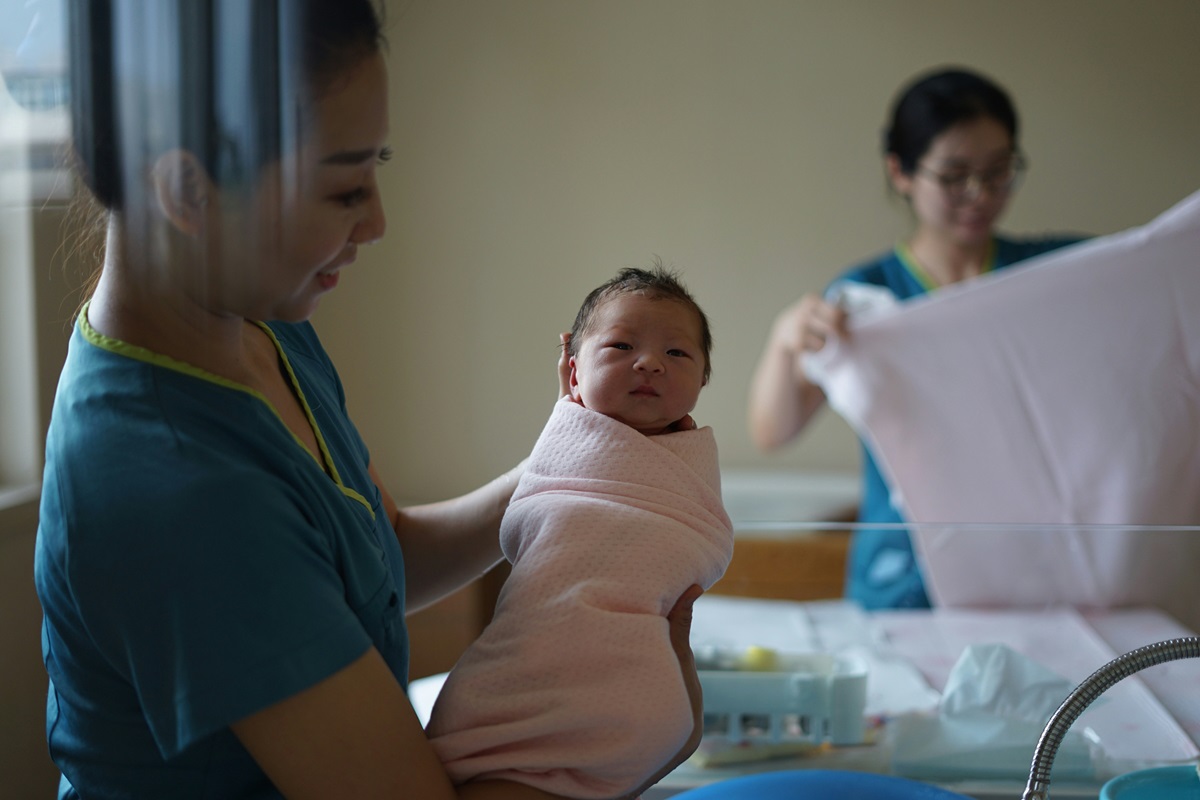With fewer and fewer births Beijing stops international adoptions
Started in 1992 at the height of the ‘one-child policy’, in over 30 years they have seen more than 160,000 children and mostly girls taken in by families around the world. The Foreign Ministry spokeswoman: ‘Adjustment in line with international trends’. Last year there were only 9 million new births across China, despite the fact that today - unlike yesterday - the authorities are calling for more children.
Beijing (AsiaNews/Agencies) - China will no longer send children abroad for international adoption. The government has announced this, thus cancelling a series of agreements that began in 1992 - when Beijing was still in the midst of its one-child policy - and that have seen more than 160,000 Chinese children adopted by families around the world in more than 30 years, half of them in the United States, according to data from China's Children International.
Responding to a question about such a notification received from the US State Department, Beijing Foreign Ministry spokeswoman Mao Ning said the Chinese government had ‘adjusted’ its adoption policy to be ‘in line’ with international trends.
The official explained that - apart from some cases related to relatives up to the third degree with people living outside the country - ‘China will no longer send children abroad for adoption’. ‘We express our appreciation to foreign governments and families wishing to adopt Chinese children for their good intentions and the love and kindness they have shown,’ she added.
The rule change comes as Chinese politicians struggle to encourage young couples to marry and have children, due to the increasingly evident demographic crisis. China has one of the lowest birth rates globally and is trying to encourage young women to have children, but so far with little success.
New births in the People's Republic in 2023 fell by 5.7 per cent to 9.02 million and the birth rate reached an all-time low of 6.39 births per 1,000 people, down from a rate of 6.77 births in 2022.
Overall, the population decreased by 2.08 million, or 0.15%, to 1.409 billion in 2023. This is much higher than the population decline of 850,000 in 2022, which was the first since 1961, during the Great Famine of the Mao Zedong era.
China implemented a strict one-child policy from 1979 to 2015 to reduce its population. When families were restricted to having only one child, many had chosen to keep the male children and give the females up for adoption.
The ‘international trends’ that the Beijing Foreign Ministry spokeswoman referred to refer to the decision taken in May by the Netherlands to ban its citizens from adopting children from foreign countries. Also in Denmark, citizens will no longer be able to adopt children from abroad after the only local agency dealing with this issue declared it would stop its activities.
27/02/2021 13:58
31/05/2021 11:16
12/04/2019 10:09
23/03/2019 09:00
05/01/2019 07:53







.png)










